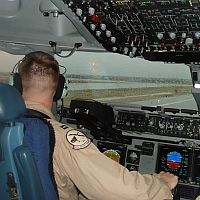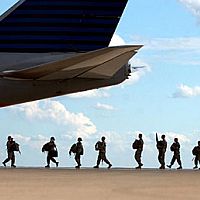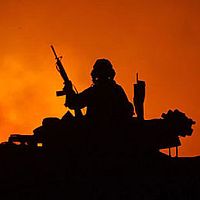- About Us
- Columns
- Letters
- Cartoons
- The Udder Limits
- Archives
- Ezy Reading Archive
- 2024 Cud Archives
- 2023 Cud Archives
- 2022 Cud Archives
- 2021 Cud Archives
- 2020 Cud Archives
- 2015-2019
- 2010-2014
- 2004-2009
 |
Ezy Reading: Changing Perspective |
Back in March of this year a severe, late-season winter blizzard hit Bangor, Maine on the same day as I’d been due to catch an early flight to New  York City. That morning the snow had piled so high and was still coming down at such a rapid rate that it was near impossible for any taxi to come pick me up from home in good time. When a cab finally arrived and I reached the airport — after an extremely slippery, wild ride in which my driver was forced to follow dangerously close behind snow ploughs as to reach our final destination — I had missed my flight. All was not lost as there was another flight in five hours’ time and I’d just need to stay put and wait it out, but I was pissed off and annoyed and short tempered for the delay. Well, that is until I took the escalator up to the waiting lounge of the Bangor Airport and regained some perspective.
York City. That morning the snow had piled so high and was still coming down at such a rapid rate that it was near impossible for any taxi to come pick me up from home in good time. When a cab finally arrived and I reached the airport — after an extremely slippery, wild ride in which my driver was forced to follow dangerously close behind snow ploughs as to reach our final destination — I had missed my flight. All was not lost as there was another flight in five hours’ time and I’d just need to stay put and wait it out, but I was pissed off and annoyed and short tempered for the delay. Well, that is until I took the escalator up to the waiting lounge of the Bangor Airport and regained some perspective.
There, waiting in the lounge alongside a few other stranded local passengers like myself were about three hundred U.S army soldiers. Bangor Airport, due to its past life as a former air force base with large-capacity runways, and because of its geographic location tucked away in the far northeast of the nation, is one of the last points of departure and first points of return for American servicemen and women on their way to and returning from Iraq and Afghanistan. Here, then, delayed since about four that morning was a throng of tired young soldiers waiting on mechanical repairs to their transport carrier that they might soon, via Germany, complete their deployment to Iraq. Instantly any irritation I may have been harbouring about getting into New York a few hours late dissipated.
What stood out the most in observing these patiently waiting troops was how young they were. Really young. Even those soldiers among them who bore the rank of sergeants, lieutenants, too, still looked far younger than my thirty-one years of age. I could only imagine the kind of potential responsibilities they’d be dealing with at a time when they should have still been only mastering the art of shaving. And what a complete mix of ethnicity they represented. These troops — who I later learned were primarily in origin from the south — were white, African-American, Asian, Hispanic and more. They really did seem to represent a complete cross-section of American diversity. And yet, they also seemed to largely represent one core demographic of America as well – the impoverished working class. I had plenty of time on my hands until my own flight and so, soon enough, I’d struck up a conversation with a soldier who hailed from Tennessee and was invited into playing a couple hands of no-money poker in a circle with four other waiting soldiers. Two were farmer’s sons, two were from small Mississippi towns where unemployment had left them with few  other options than the army, and one, a Hispanic, openly conceded that he was a U.S resident but not yet a citizen, and hoped by having committed to military service that it might help speed up his citizenship. For this, he was nicknamed ‘Green Card’ by the others.
other options than the army, and one, a Hispanic, openly conceded that he was a U.S resident but not yet a citizen, and hoped by having committed to military service that it might help speed up his citizenship. For this, he was nicknamed ‘Green Card’ by the others.
The few hours we shared in the airport terminal — the troops ended up departing before I did — provided an extraordinary insight into what makes up a large part of America’s military forces today. These were men barely into their twenties who, on the evidence, seemed at least somewhat motivated to ‘the official cause’ of securing and stabilizing Iraq, and yet they were also very honest about the core reasons for why they had signed on to go to war: financial security, freedom from unemployment and poverty, a means of support for their wives and children and, at least for one, hopefully, citizenship. We cracked jokes and played cards, they asked a great many questions about Australia and ‘The Crocodile Hunter’ and, in general, we kept things light and friendly. At the same time however, there was an unmistakable and completely understandable air of nervous tension that hung over the room as these kids contemplated — or tried to forget — the risks and dangers they would soon face a day’s plane ride away.
“Be safe and get back to your families before too long” was the best I could muster as we bade farewell and I soon found myself sitting in an unsettlingly quiet airport lounge pondering how in the hell I’d allowed something like a slightly delayed flight to New York to ever bother me in the slightest.
Five months later I was back in New York and seated in a Hells Kitchen bar with two friends enjoying a quick afternoon beer as respite from the searing summer heat. Before too long we were approached by a recently returned serviceman from Iraq who, having just turned twenty-four, was on a three day drinking binge to celebrate with his Vietnam War veteran father. We chatted awhile, shared a round of beers and swapped observations of Australia versus America. There were more inevitable questions asked of us about ‘The Crocodile Hunter’. The pair was well hammered, but they were fine. Then, upon the father excusing himself to go to the toilets, the young soldier’s mood darkened, and in his drunken stupor he decided to share with us two tales from his time abroad in Iraq.
First up, he explained that as far as he had been concerned during his two tours of duty, it didn’t matter if it was an insurgent or a five-year-old boy who ever came within his field of range, because in Iraq he blew either one away without a  moment’s hesitation. He elaborated: “I ain’t waitin’ around for someone to get me. You don’t know who’s who, so I’d just pull my trigger on the kid and say fuck it. Easy as that.” Now I’ll concede that unless one day I have the misfortune to witness it firsthand I’ll never be able to truly appreciate the complexities and uncertainties generated in that ‘fog of war’. Who am I to be able to make confident declarations about what should or shouldn’t happen in the heat of battle? And yet, in listening to this young soldier speak I recalled Chris Hedges’ recent article ‘The Other War’ in Nation, wherein some fifty military veterans had gone on the record — in disturbing detail — about attacks on Iraqi civilians. The one account from Hedges’ article that stuck with me as this soldier had told of shooting an Iraqi child that “got too close” was that of Sgt Kelly Daugherty of Colorado. In the piece she explained, “There was then a little boy — I would say he was about ten — a little Iraqi boy, and he was crossing the highway with his three donkeys. A military convoy hit him and the donkeys and killed all of them. Basically your order is that you never stop.”
moment’s hesitation. He elaborated: “I ain’t waitin’ around for someone to get me. You don’t know who’s who, so I’d just pull my trigger on the kid and say fuck it. Easy as that.” Now I’ll concede that unless one day I have the misfortune to witness it firsthand I’ll never be able to truly appreciate the complexities and uncertainties generated in that ‘fog of war’. Who am I to be able to make confident declarations about what should or shouldn’t happen in the heat of battle? And yet, in listening to this young soldier speak I recalled Chris Hedges’ recent article ‘The Other War’ in Nation, wherein some fifty military veterans had gone on the record — in disturbing detail — about attacks on Iraqi civilians. The one account from Hedges’ article that stuck with me as this soldier had told of shooting an Iraqi child that “got too close” was that of Sgt Kelly Daugherty of Colorado. In the piece she explained, “There was then a little boy — I would say he was about ten — a little Iraqi boy, and he was crossing the highway with his three donkeys. A military convoy hit him and the donkeys and killed all of them. Basically your order is that you never stop.”
Moments later, a fresh beer in hand, the serviceman shared with us another story, this time of the occasion when he was on an American base in Iraq and needed to go to the toilet to relieve himself. Upon opening the door to one cubicle that was unlocked he found a female soldier seated on the toilet. Rather than apologize and look for another vacant toilet, he gleefully told us of how he figured, “Shit, I’d been away from home too long, so what the fuck!” With that, he closed the cubicle door behind him, pulled down his pants and, pointing at his crotch, demanded of his fellow soldier — a soldier of lesser rank — “well don’t just look at the fuckin’ thing, suck it!” With a roar of laughter he added, with a flourish, “Because that’s how I roll! I needed a blowjob, so she had to give me a blowjob!” When, upon this punch line, he raised his hand looking for us to celebrate his ‘triumph’ with a high-five I’d heard enough. We politely wished him and his father well and made for the exit.
This man had served his country through two tours of Iraq and now, having left the marines six months earlier for civilian life, said that he was now contemplating taking a ‘standing offer’ from the army to rejoin the military services at a higher rank and rate of pay. Why go back? Because, he had  said matter-of-factly, the money was too good to turn down, and “hell, what else am I gonna’ do?”
said matter-of-factly, the money was too good to turn down, and “hell, what else am I gonna’ do?”
I wondered — was it a desperate, overstretched nation that would take a man back who so cheerfully could recount a tale of killing an Iraqi civilian and, potentially, of having coerced a female fellow soldier into a sex act? Or was this an honourable man and a good soldier who had been transformed into a desperate, tragic figure, shaped by the miseries and experiences of war? Either way I couldn’t help but think about those young, smiling soldiers I’d met earlier in the year and who had just been ‘looking for a way to get by’ in life. What changes had they been through since I last saw them? I wondered if they were all still safe and okay. If they were the same nervous but hopeful men I’d chatted to briefly over a game of cards. Or if they too had been transformed for the worse- their own perspectives far changed since waiting in an airport lounge for a flight to Iraq on one bitterly cold March morning in Bangor, Maine.
Ezy Reading is out as often as can be…
Ezy Reading can be contacted at feedback@thecud.com.au, just include ‘ATTENTION: EZY READING’ in the subject line of your email.
